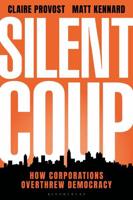Publisher's Synopsis
An apparent lack of interest by Russia in Sub-Saharan Africa over recent years masks persistent key strategic drivers for Moscow to reestablish lost influence in the region. A preoccupation with more immediate foreign policy concerns has temporarily interrupted a process of Russia's reclaiming relationships, well-developed in the Soviet period, to secure access to mineral and energy resources that are crucial both to Russia's economic and industrial interests and to its existing and new markets for military arms contracts. Russian policy priorities in Africa provide both challenges and opportunities for the U.S. in fields such as nuclear nonproliferation, as well as energy security for the United States and its European allies. These priorities indicate that Russian development of key resources in southern Africa should be observed closely. Russian trade with the region is significantly underdeveloped, with the exception of the arms trade, which Russia can be expected to defend vigorously if its markets are challenged, including by the prospect of regime change or international sanctions. At the same time, Russia and the United States have a shared interest in restricting the freedom of movement of terrorist organizations in ungoverned or lightly governed spaces in Africa, which opens potential for cooperation between U.S. Africa Command (AFRICOM) initiatives and Russian presence in the region. Overall, Russian diplomatic and economic activity in southern Africa should receive continuing attention from U.S. policymakers due to its direct relevance to a number of U.S. strategic concerns.










